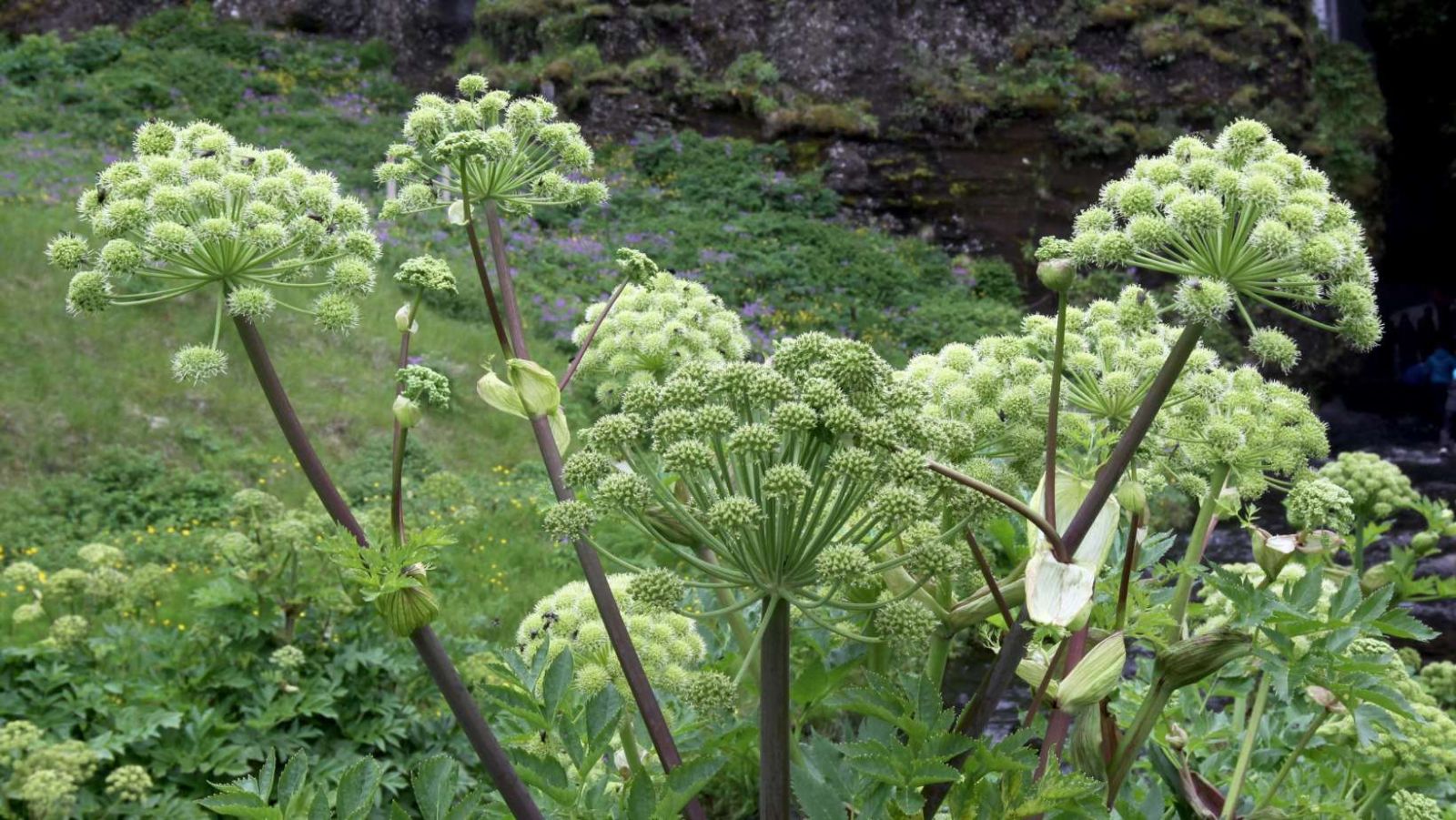Bloating, spasms, abdominal pain… These digestive issues plague the daily lives of millions, especially women. If you’re among them, you’ve probably tried everything to ease your discomfort. But have you heard of angelica? Hailing from northern regions, this multi-beneficial plant could be a real miracle for soothing stomach aches. Coralie Beguin, a naturopath, explains.
Angelica: The Plant That’s Good for Your Gut
Angelica (Angelica archangelica) is a large perennial herb from the Apiaceae family, like parsley or fennel. Native to the cold regions of Northern Europe, it was once considered a magical plant capable of curing all ailments. While its powers may not be quite so extensive, angelica remains an excellent ally for our digestive system:
- It stimulates digestion and relieves bloating
- It calms spasms and abdominal pain
- It regulates transit, acting on both diarrhea and constipation
- It helps restore appetite in case of digestive issues
- It reduces stress and anxiety often associated with intestinal problems
These properties make angelica the go-to plant for irritable bowel syndrome, functional colopathy, and difficult digestion. It acts quickly to soothe symptoms and restore intestinal comfort.
How to Consume Angelica to Reap Its Benefits?
There are different ways to use angelica to relieve digestive issues. The simplest and most common is to make a tea:
- Put 1 to 2 teaspoons of dried angelica root in a cup of simmering water (not boiling to avoid altering the active ingredients).
- Let it steep for 10 to 15 minutes, then strain.
- Drink 2 to 3 cups a day, preferably between meals for better absorption. You can also have a cup right after eating to aid digestion.
Angelica can also be consumed as a mother tincture, in capsules, or as a fluid extract. In any case, ask your naturopath or herbalist for advice on adapting the dosage to your situation.
Precautions When Using Angelica
While angelica is generally well-tolerated, certain precautions should be taken:
- It’s a photosensitizing plant: avoid sun exposure during your treatment to prevent skin reactions.
- It’s not recommended for pregnant and breastfeeding women due to possible hormonal effects.
- Consult your doctor if you’re on medication to check for potential interactions.
- Don’t exceed 3 weeks of treatment without consulting a healthcare professional.
Finally, while angelica can effectively relieve your symptoms, it doesn’t exempt you from addressing the root causes of your issues: stress, unbalanced diet, food intolerance… Working on your lifestyle remains essential for long-term gut comfort!
Answering Your Questions About Angelica
In what form is angelica most effective?
It depends on your sensitivity and the intensity of your symptoms. For occasional and mild issues, the infusion will work well. For stronger and faster action, prefer the mother tincture (30 to 50 drops 2 to 3 times a day). Capsules are more suitable for long-term treatments. Ideally, ask your therapist for advice.
Can I give angelica to my child for stomach aches?
Angelica is not recommended for children under 12, except with medical advice. For older children, prefer a small dose infusion (1/2 teaspoon for a cup of water), up to 2 cups maximum per day. Always start with the smallest effective dose. If symptoms persist, consult a pediatrician to identify the cause.
What other plants can be combined with angelica for digestive issues?
To enhance the effects of angelica, you can combine it with other digestive and soothing plants like lemon balm, peppermint, fennel, licorice, ginger… Again, seek guidance from a naturopath who can tailor plant synergies to your specific condition and issues.
Can angelica replace my medication?
Absolutely not! If you’re taking medication for digestive problems, especially antispasmodics, don’t abruptly stop them to replace them with angelica. Talk to your doctor first. Herbal medicine is complementary but doesn’t substitute for treatment, especially if prescribed for a diagnosed condition. Exercise caution!
